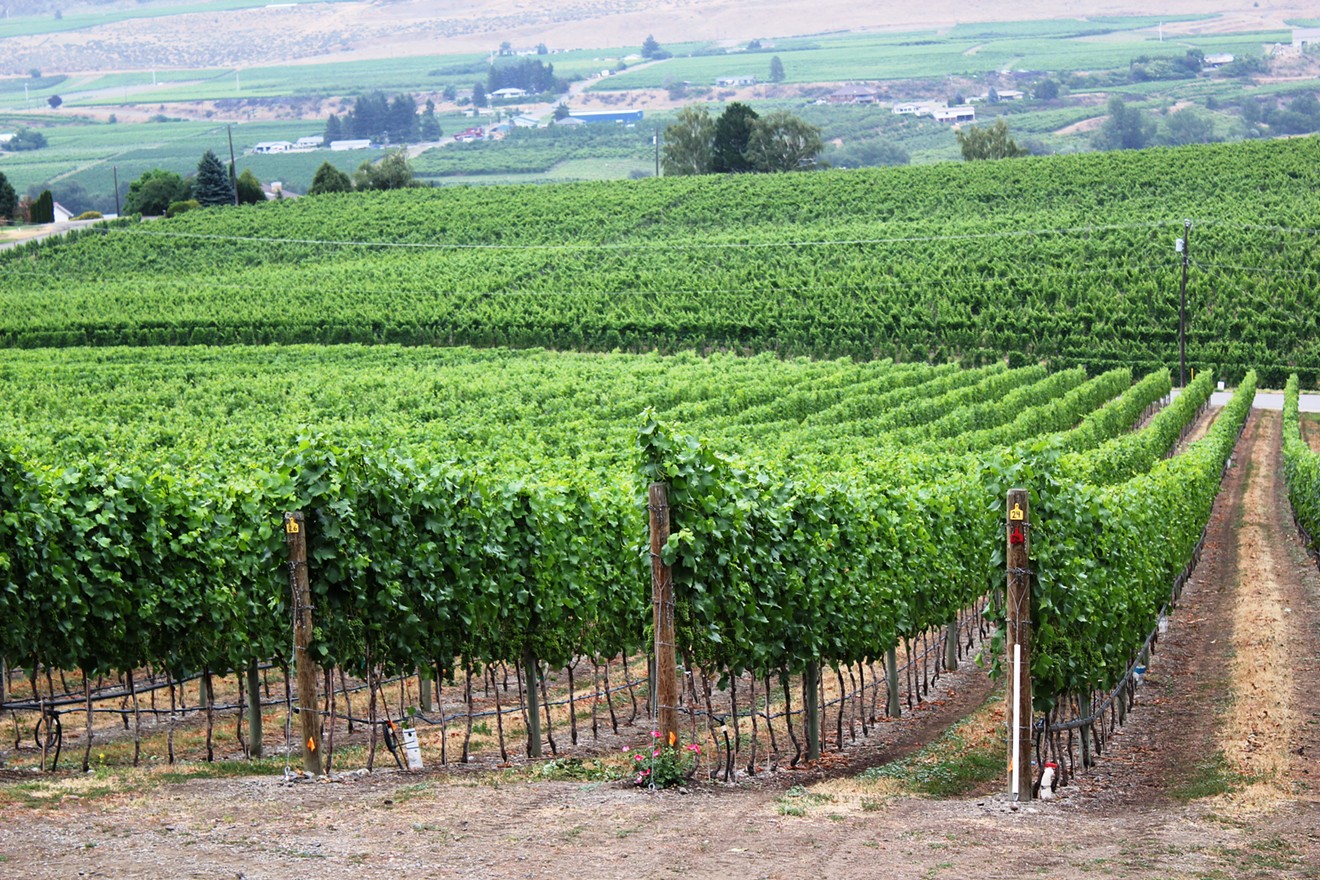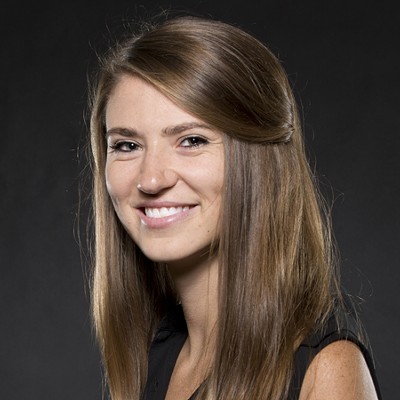Most types of grapes need a few things to thrive: limited humidity, high elevation, and dry summers. In other words, they need pretty much the exact opposite of what Miami offers.
So why do Miami-Dade County officials think the area is prime for wineries? They've traveled to the Finger Lakes Region of New York for inspiration and eased county regulations to allow wineries in Miami-Dade's agricultural area. Now they're developing tours to show off winemaking opportunities to industry bigwigs in the hopes some will be convinced to set up shop here.
"We are a very eclectic growing region," says Charles LaPradd, the county's agriculture manager. "We produce a tremendous amount of things. Grapes don't happen to be one of those things, but we produce a tremendous amount of fruit that wine can be made from."
Yet 20 years of pursuing the idea has so far produced just one winery, Schnebly, a Homestead operation that makes wine from tropical fruits. Experts say there's little reason that regular winemakers would be interested in moving to a state where muscadine grapes are the only variety that can be reliably grown.
"I think there are limited opportunities for wineries in South Florida, at least in terms of using local fruit," says Michael Kaiser, director of public affairs for WineAmerica, the national association of American wineries. "Sweet, native grapes that make muscadine wine can be grown in Florida, but they are not really taken seriously by a lot of wine drinkers."
The idea to bring wineries to Miami-Dade came from Commissioner Dennis Moss, whose district includes the agricultural region. He's actually been pushing for wineries since 1995, convinced they offer a way to preserve farmland as developers snatch up more and more land in the county. He paved the way for the 2005 opening of Schnebly by sponsoring changes allowing wineries in the area.
"At the end of the day, it may prove to be the way to make the land valuable enough so farmers aren’t tempted to accept these very, very lucrative offers to sell to developers," the commissioner told Miami Today at the time.
More than a decade later, Schnebly's remains the county's only winery. Statewide, there are 30 certified Florida farm wineries. There are none in Broward, though Palm Beach County has one, Sons & Daughters Farm and Winery, which uses tropical plants for its wine.
Those pushing the concept say Miami-Dade's status as a tourist destination, its large agricultural area, low taxes, and, yes, climate are enough pieces to make wineries work even without grapes.
If they don't use tropical fruits or muscadine grapes, they can bring in juice that would be fermented or wine that would be bottled, says James Kohnstamm, a senior economic development specialist with the Beacon Council, Miami-Dade's economic development organization. But would winemakers be interested in that kind of opportunity?
"We're very optimistic on the broader concept," says Kohnstamm, whose organization is working on the winery idea alongside Moss and the Greater Miami Convention & Visitors Bureau. "How that actually comes about, what model ultimately is proven successful, I think is to be seen, but there's certainly a huge market here for wine."
Last month, LaPradd and the visitors bureau hosted a meeting for local residents who are influential in the wine industry. LaPradd says there's been some interest so far. A tour of the area is being organized for local wine distributors, winery owners, and industry groups outside Miami, as well as tour operators, travel agents, and travel media.
No money has been spent on the project, LaPradd says, but that could change: A report presented to county officials this week says that "to increase the impact of these tours, there needs to be a well-funded marketing strategy" to promote the area. The report says there is no such funding available at this time.
[
{
"name": "Air - MediumRectangle - Inline Content - Mobile Display Size",
"component": "19274298",
"insertPoint": "2",
"requiredCountToDisplay": "2"
},{
"name": "Editor Picks",
"component": "17482312",
"insertPoint": "4",
"requiredCountToDisplay": "1"
},{
"name": "Inline Links",
"component": "18711090",
"insertPoint": "8th",
"startingPoint": 8,
"requiredCountToDisplay": "7",
"maxInsertions": 25
},{
"name": "Air - MediumRectangle - Combo - Inline Content",
"component": "17482310",
"insertPoint": "8th",
"startingPoint": 8,
"requiredCountToDisplay": "7",
"maxInsertions": 25
},{
"name": "Inline Links",
"component": "18711090",
"insertPoint": "8th",
"startingPoint": 12,
"requiredCountToDisplay": "11",
"maxInsertions": 25
},{
"name": "Air - Leaderboard Tower - Combo - Inline Content",
"component": "17482313",
"insertPoint": "8th",
"startingPoint": 12,
"requiredCountToDisplay": "11",
"maxInsertions": 25
}
]












